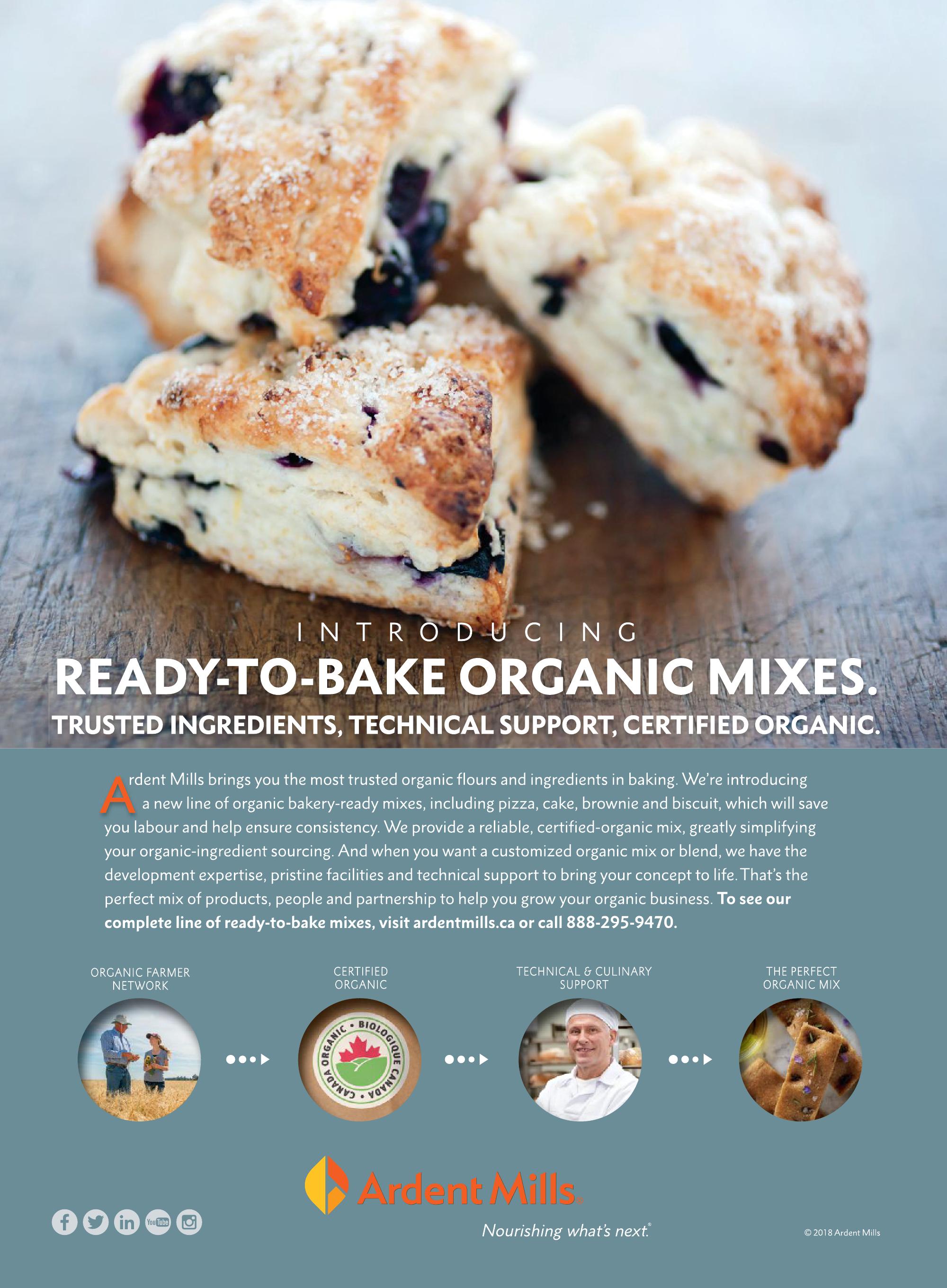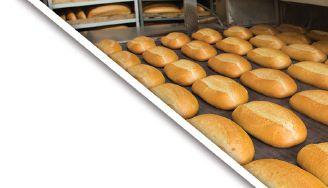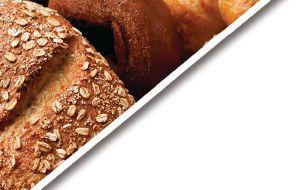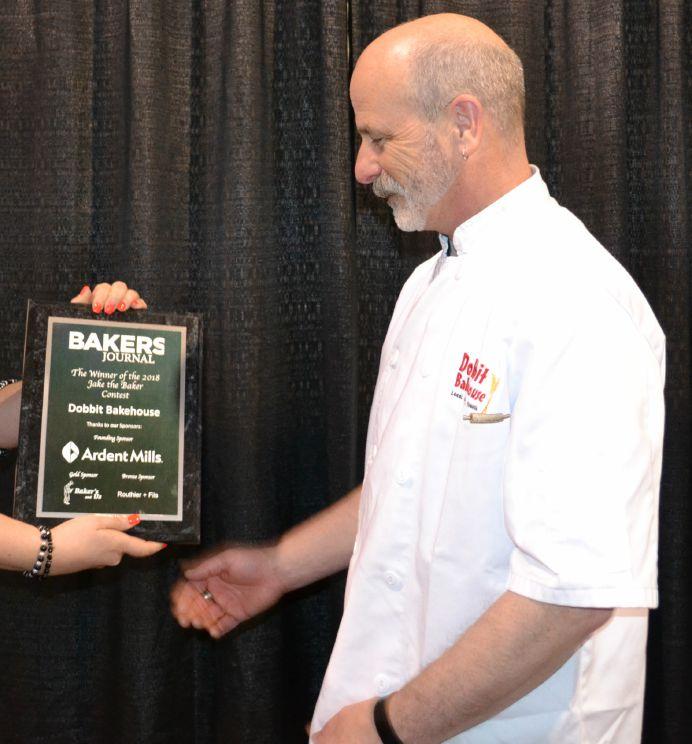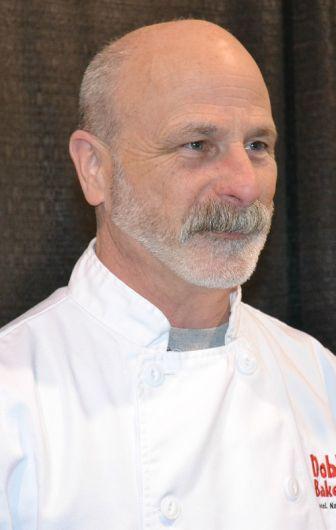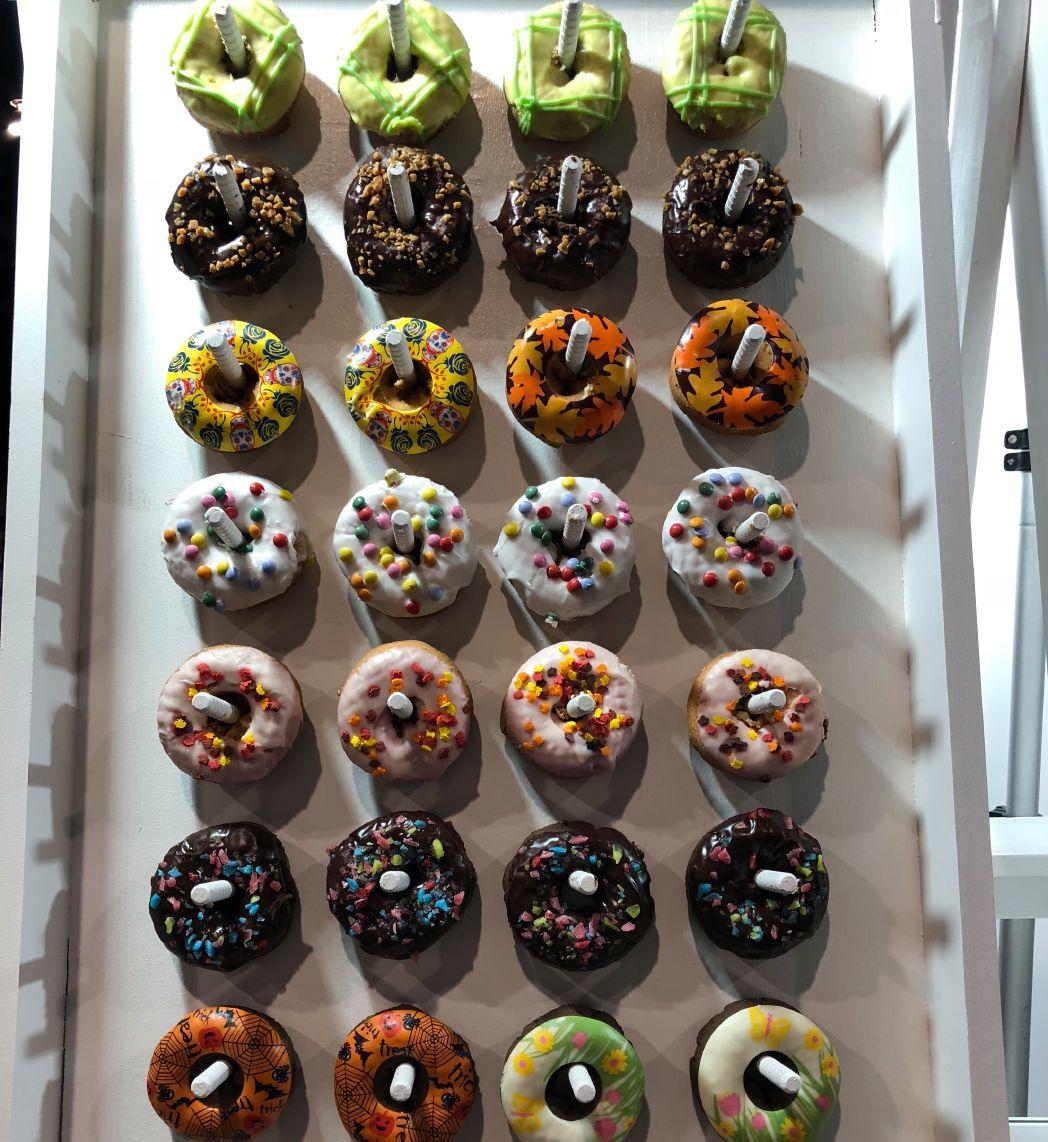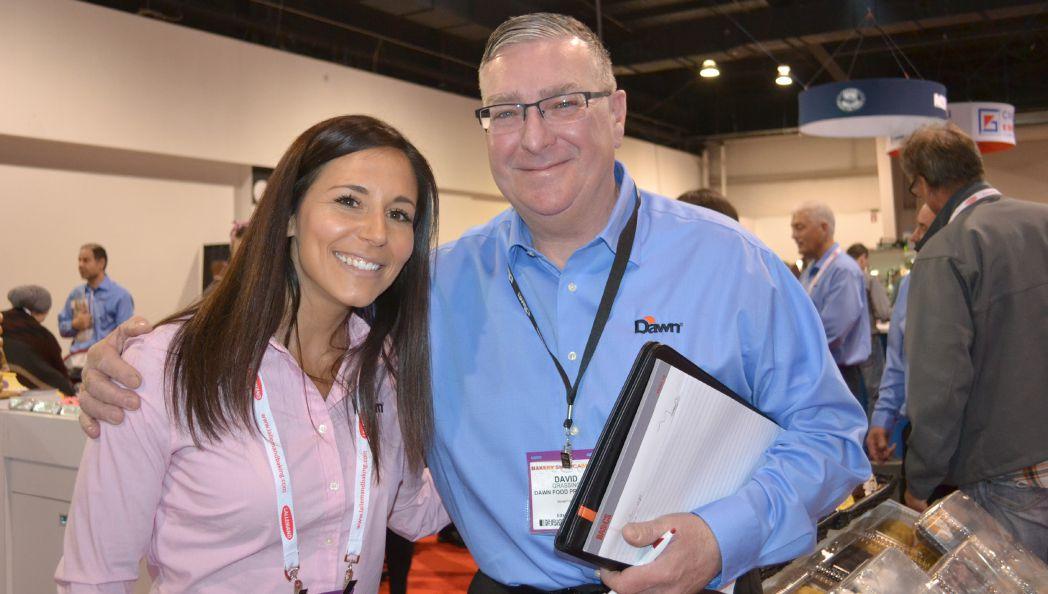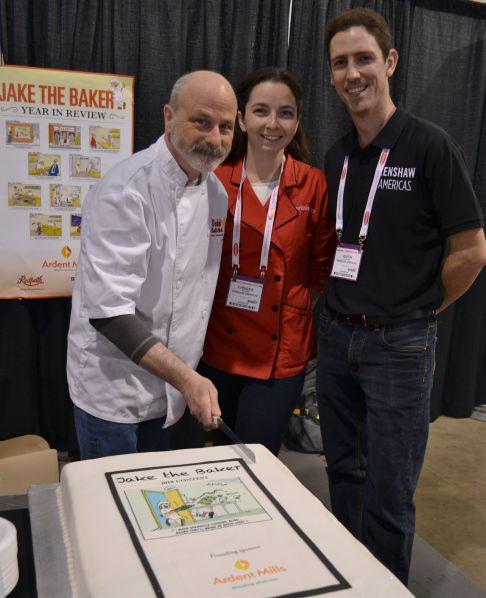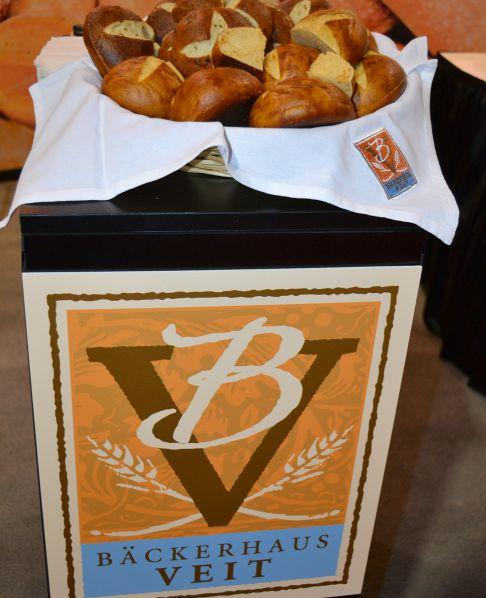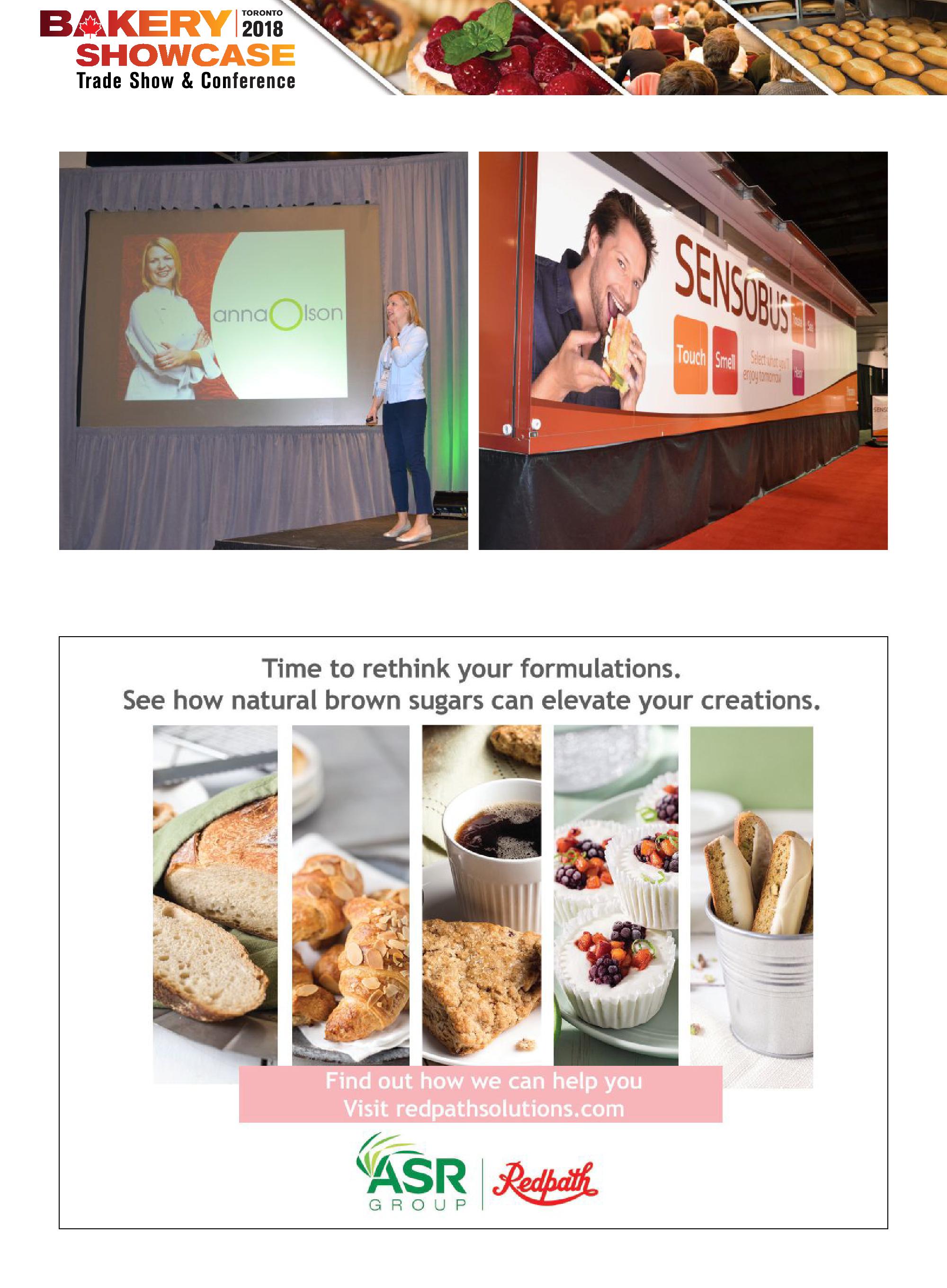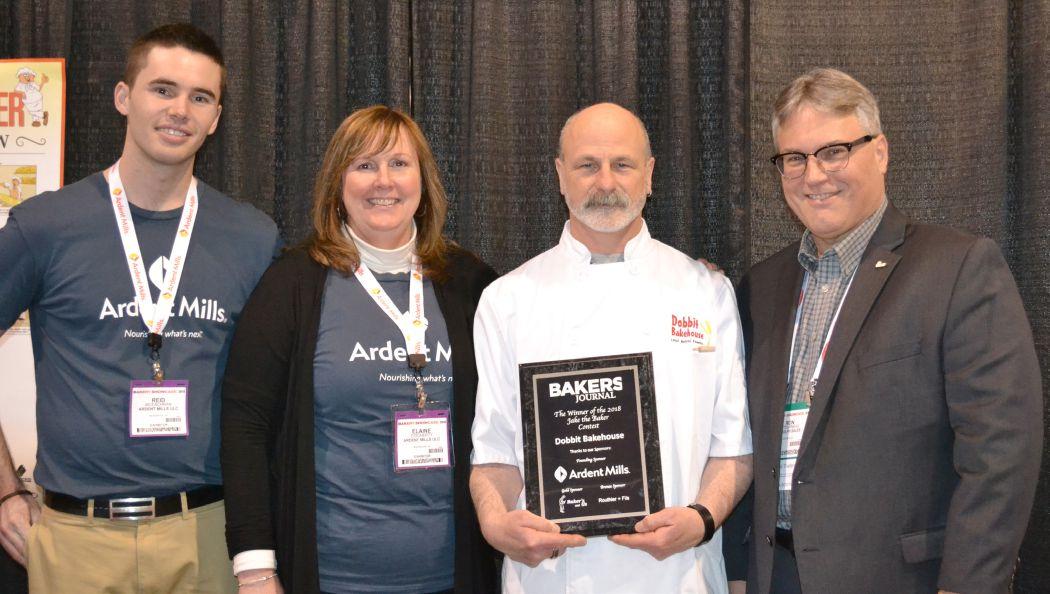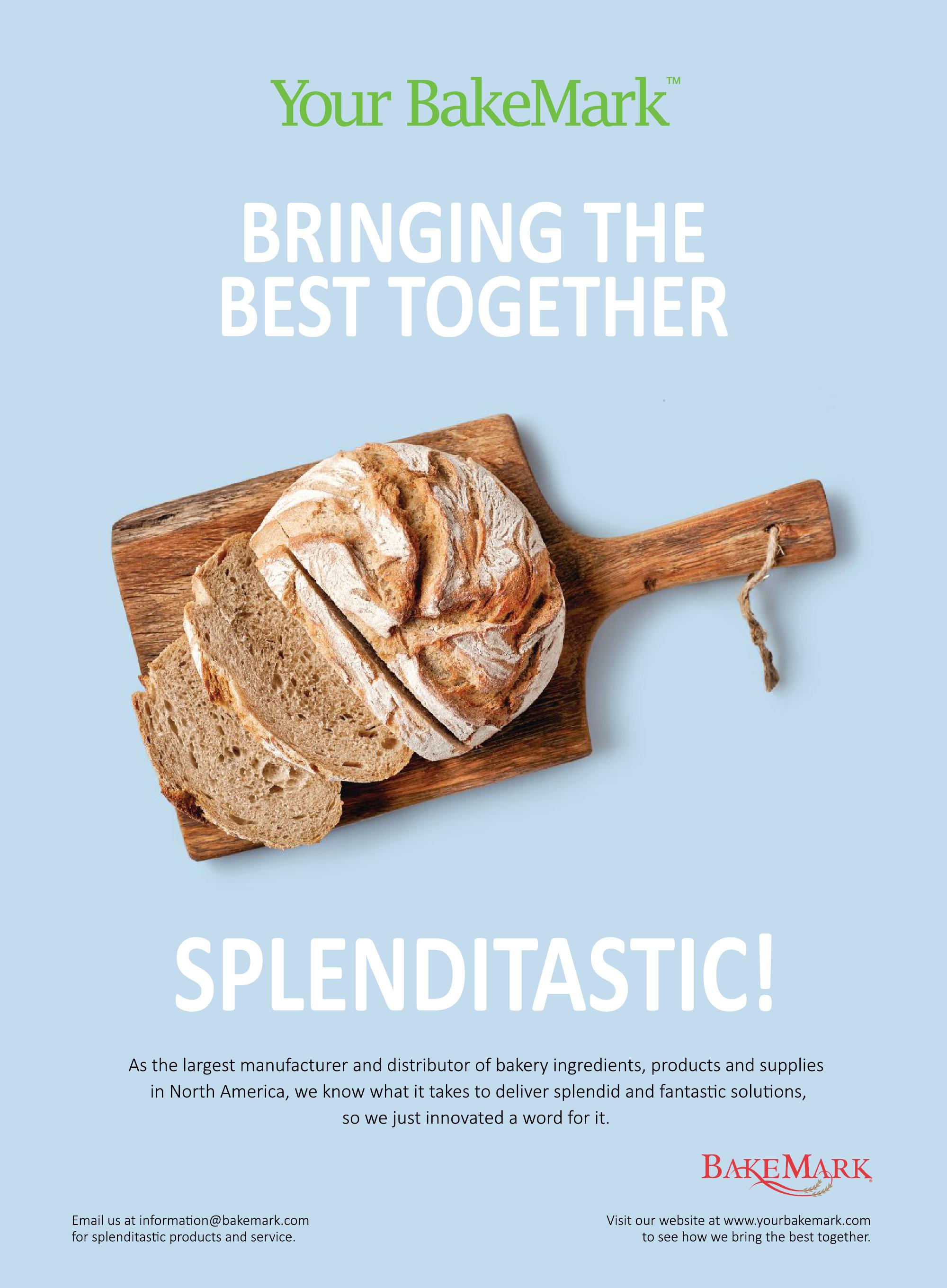2018 show was a huge success
|
BY NAOMI SZEBEN
Bakery Showcase 2018 had more vendors than the previous year. From food flavour novelties to new methods of waste reduction, this year’s showcase featured many learning opportunities.
Hosted by the Baking Association of Canada (BAC) this year’s show addressed concerns for health, better-foryou-foods and innovation in treats and marketing in their panel, and displays from more international vendors.
In previous years, the event took place over a span of three days. A change in the format scheduled the show over two days, with longer days. Paul Hetherington, president and CEO of the Baking Association of Canada spoke with Bakers Journal about Bakery Showcase. “Overall, we were very, very pleased with the outcome…we were nervous about the reduced days, and about how the vendors or attendees would respond.” Hetherington needn’t have worried; 2018 marked an 8 per cent increase over last year’s attendance, with a ten per cent increase in participation amongst attendees. “The overall takeaway was very positive,” he added. “It looks like the industry embraced the format change.”
Looking back at the overall Hetherington recalled how a quote by Tony Chapman stood out for him: “Our industry is the only one where a customer looks at the product and immediately smiles.” Hetherington stated that a bakery looking towards meeting both ends of the healthy to indulgent snack spectrum should “understand what they are offering.” In other words, instead of being all things to all people, a bakery that would want to survive in the complex world of
bakery marketing would need to consolidate their product offerings. While the world of low-sodium, reduced sugar and gluten-free treats may confuse the most diet-conscious pastry lover, in everyone’s heart there’s always room for dessert. “Indulgence products still have a place in the market,” explained Hetherington. “They make people happy.”
Chef Anna Olson also discussed the duality of a baker’s business. Despite consumer attention appears focused on healthier food choices, she noticed that people still crave and give in to indulgences. Now, clients are asking about the origins of their food’s ingredients. Just a few years ago, people were more interested in how the food was prepared, not where it came from.
Storytelling as a way to market food was explored with speaker Tony Chapman, who discussed how clients want to feel a connection to their local bakery, and may want to empathize with a value that their baker may espouse: That could mean environmental, social or trendy. “Clients are more likely to ask what their shop stands for,” added Chapman. A store that has a story that a client can relate to may fare better than a large grocery store with a more competitive price. “Price is not a driving force anymore,” he added. “That’s a race to zero.” Chapman urged the audience who owned small businesses to look at the emotional side of their story, and use that in their marketing tool.
The show gathered impressions and concerns for businesses that were looking toward the future. With more consumers concerned with buying healthier snack options while catering to the occasional indulgence, the balance of the displays were neatly divided between those who wanted to thrill their
BAKERY SHOWCASE 2018
taste buds, and those who wanted a better-for-you treat. The exhibit featured options to reduce sugar, plant-based fats, and gluten-free flours and mixes.
Advances in technology featured tallying responses and gathering data from various sources: Puratos displayed their “Sensobus” which allowed the show’s attendees sample various breads and share their input regarding preferences for texture, taste, smell and mouthfeel.
Liesbet Vandepoel, of Puratos, also shared the discovery that cost was not a large consideration in clients’ buying choice. Citing a Mattson macro-trends food study, “people want to feel in control of their food choices,” Vandepoel shared. Indicating that the study showed that people were drawn to healthy foods with “power ingredients” such as whole grains or anti-oxidants, as these perceived ingredients gave a halo effect to most products.
The SEW-Eurodrive automation display and their introductory video prior to the speakers spoke to the public’s need for automation and trends in energy transfer: Their Movitrans™ display mesmerized attendees with its contactless energy transfer system in AGV’s, a machine that recharged itself while performing a task.
In all, the Bakery Showcase speakers were informative and the vendors displayed a multicultural appeal. The BAC reports that this was a larger turnout than last year; we can’t wait to see what the showcase will bring us next year.
The new two-day format will be ongoing: Come visit next year’s Bakery Showcase in Montreal, scheduled to be held May 5 and 6, 2019 at the Palais de Congrès de Montréal. / BJ
OPTIONS AND OPPORTUNITIES
This year’s winner of the Jake the Baker Award knows about being given options and finding opportunities, and wants to share that advantage with those less fortunate. Paul Nicholl, owner and chief baker of Dobbit Bakehouse in Musquodoboit Harbour, N.S., is often found mentoring students with an interest in the culinary arts, and helps out local small business starting up their first venture. In both paths, Nicholl believes that information is the key to success.
Nicholl rekindled his first love to fire up his second career. “I’ve always loved baking,” Nicholl answers when asked what inspired the career change. “My mission was to start a small bakery in a small town. I had spent twenty five years in the high-tech sector…so I switched from high tech to low-tech.” Nicholl has no regrets. The bakery, a playful abbreviation of the town’s name, Musquodoboit Harbour is now a popular bakery that serves a range of treats to locals and tourists alike.
“I thought if I’d have my own little bakery, I wouldn’t have to worry about shareholder value, I wouldn’t have to worry about the board of directors. And in my high-tech world I thought if I opened a bakery, I wouldn’t have any of that.”
Like any entrepreneur, his new venture was not without its hurdles. In Nicholl’s case, it was all about the two “L’s:” Locals and Locale. “I was looking for the perfect location, and I was looking around. It had to be very small, and there just happened to be a pizzeria that closed, so space was available. The place was a dump, so we had to clean it up a lot to bring it up to
standards. So it was a challenge to get the place ready; it took several months to do that.”
The second challenge lay in discovering what product mix would appeal to his new clientele. “The customers are looking for a source of food that they can trust. You know, nutrition-wise, is it going to have a lot of additives, a lot of ingredients they can’t pronounce. I have an open kitchen, so standing there at a regular counter, you can see me cutting the
butter. It keeps it very open and transparent. The clients can come by and say, “wow, is that an entire block of butter they are cutting up?” That gets them every time, seeing me cut up a 25kg block of butter.”
Winning the small town locals over with his Pane Siciliano and Pain de Campagne was no easy feat, but it was nothing compared to the challenges he faced when mentoring high school students. The Options and Opportunities Program, known as the
This year’s proud winner of the 2018 Jake the Baker Award.
Dobbit Bakehouse breathes fresh air into town | BY NAOMI SZEBEN
O2 program, was designed to help students who are not academically inclined to find a trade. Nicholl wanted to help youth find a vocation, by sharing his passion for baking.
“I try not to be a parent, and I’m not their teacher,” Nicholl speaks of the delicate balance between being an employer, trainer and figure of authority to high-school students. Some students came from troubled backgrounds, but there was a touching success story: One student with family troubles succeeded in the O2 program and even went on to graduate from the two-year culinary arts program at the local community college. “He said he didn’t want to disappoint me,” added Nicholl with pride.
He sees parallels between baking and starting businesses. “It’s about precision, how to be part of a team. If you make a mistake in the beginning, it’s going to come out a mistake in the end. Magic doesn’t happen in the baking process. You have to fix your errors as you go along.”
This advice holds true for business owners, and he gladly helps out start-ups with their business plans, among them, a local barber. “Again, another mid-life career change,” said Nicholl, relating to the situation. “He knew he wanted to be self-employed but he didn’t know how to go about starting a business. I’d coach him on things to be aware of. He’d bounce ideas off me, and I’d tell him about things like cash systems. These were things that I’d regretted when I first started my business.”
One mistake that Nicholl’s made involved finding the right product mix for his location. “When I opened, one of the first things I realized was that the breads I enjoyed making were not necessarily the breads my customers were looking for. European breads, I love doing them, but they were not popular. What they were looking for were basic white breads, basic brown breads from the Maritimes. And I didn’t offer those until two years after I opened. That was me, living my
dream.” Only after a sobering look at his accounts, did Nicholl realize that his finances needed to improve by catering to regional flavours. “My demographic, it wasn’t what they wanted. I should have realized this sooner in the game.”
Nicholl learned from his mistake and while he still offers a range of European breads, he’s known locally for his delicious Granny’s Brown Bread. He offers some advice in
winning reluctant customers over: Name recognition is a key to getting clients to try something new.
“They do try it when we give them a little spiel.” Nicholl recommends trying the sommelier approach, to offer a sample, and make a meal recommendation that would go along with it.
“I found that a tactic that works well, is coaching customers as to how the bread was made, what is in it, and suggesting what goes well with it, kind of like choosing a wine for a meal. We take that approach, and people really enjoy that, they’ll go with our suggestions. Most of the time they’ll go with our suggestions, and they all come back with, “I don’t remember
what that was, but it was really good!” Ever the generous coach, Nicholl offers the following four tips to bakery success:
1. Collect data. “It sounds trivial and it may not be your thing, but with data, you can capture how many customers you have in a day, how much you sold in a day, what people bought in a day. Keep that information, because it will help you staff differently. It will help you explain what product mix works, and what didn’t.
2. Assess your data after 12 months: “At the end of the year you can decide what products you should ban. If you don’t record that, by next year, you’ll likely forget. There’s a number of ways to record it. It can be as sophisticated or as complicated as you’d like. It can be a sheet you keep by the cash register, or a spreadsheet you fill out at the end of each shift. “
3. Research point-of-sale devices: “Make charts, ask about your debit systems.” Nicholl recommends asking other shop owners about their Interac machines, to see which ones have good customer service, which ones work well and which have a good tech support team. “Do your shopping to see which systems work and which one doesn’t. Don’t jump in headfirst. The banks love to talk to you, but they are not your friend.”
4. Reach out to your clients: Know your demographic, but offer samples of both popular treats and something a little different. “I think the target is to get them to recognize the name, especially if the product looks different, has a different colour, different shape.”
It’s Paul Nicholl’s tradition in sharing information that makes Dobbit Bakehouse the real deal. / BJ
Winner chef Paul Nicholl of Dobbit Bakehouse.
People and products at Bakery Showcase 2018

